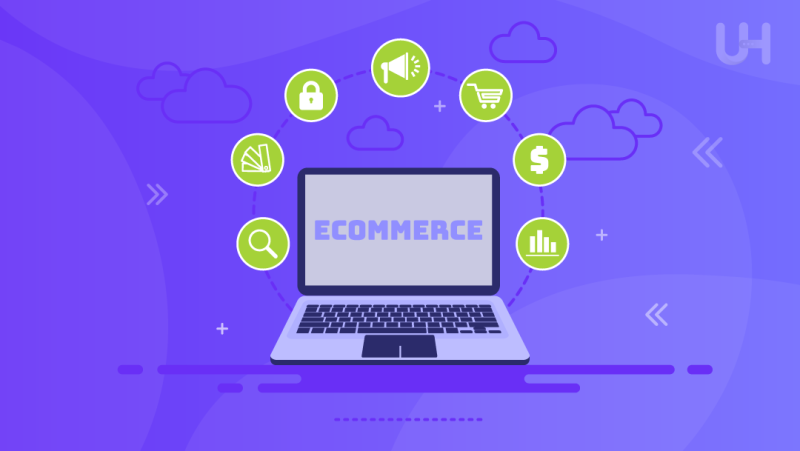Starting an eCommerce venture can be an exciting and rewarding but challenging endeavor. Aspiring online entrepreneurs need to navigate through a plethora of tools and technologies to establish a robust and successful online store. To make this journey easier for you, I prepared seven essential tools; they are indispensable for kickstarting your eCommerce.
These tools cover crucial aspects such as website creation, payment processing, customer support, marketing, hosting, and data analysis, empowering you to build a solid foundation for your eCommerce business.
Why to start with eCommerce?
An online business offers you tremendous opportunities to decide what, when, and how you do things. However, it doesn’t mean you can just head to the beach in the middle of the day. Even though you don’t have a boss, there are still plenty of other commitments: to employees, colleagues, suppliers, and customers.
Nonetheless, the fewer ties you have, the greater your freedom. Running a small business, you can choose when and where you work. You can arrange everything in a way that the location and timing of your work become irrelevant. All you need is a laptop and an internet connection.
A bigger company doesn’t always mean bigger profits. A larger scale also entails higher costs and smaller margins. There are numerous examples of small businesses with substantial profits despite their small size.
The most important thing is not the size of the company, but flexibility, the ability to adapt to the market and customers, and utilizing the latest technologies. Use the tools presented here, and you will achieve success with your eCommerce!
WordPress Blog
When starting with eCommerce, having a solid online presence is crucial, and a WordPress blog is an essential tool to achieve that. WordPress is known for its user-friendly interface and extensive customization options. It enables you to create engaging and informative content related to your products or industry.
Regularly publishing blog posts can attract potential customers, build trust, and establish your brand as an authority in the niche. You can implement SEO best practices to increase your website’s visibility, drive organic traffic, and integrate your blog with your eCommerce store.
WordPress supports user comments and engagement, allowing you to interact with your audience directly. Responding to comments and fostering a sense of community can enhance customer loyalty.
WordPress themes are responsive, meaning your blog will adapt to different devices, including smartphones and tablets. It ensures a consistent and user-friendly experience for all visitors. You can organize your content into categories and tags, making it easier for visitors to find specific topics of interest. Also, you can embed images, videos, and other multimedia into your blog posts.
To start a WordPress blog, you’ll need to choose reliable and secure WordPress hosting. Once your blog is up and running, regularly update it with high-quality, relevant content to attract and retain visitors, ultimately driving more traffic to your eCommerce store.
WooCommerce
WooCommerce is a powerful and widely used eCommerce plugin for WordPress, making it an essential tool for anyone starting an online store. With its user-friendly interface and extensive features, WooCommerce provides a robust platform to build and manage your eCommerce business.
As a WordPress plugin, WooCommerce seamlessly integrates with your existing WordPress website, allowing you to add eCommerce functionality without a separate platform. With a wide range of themes and extensions, WooCommerce offers extensive customization options. You can design your online store to align with your brand identity and create a unique shopping environment.
WooCommerce is a complete eCommerce platform. It provides an intuitive product management system, secure checkout process, payment gateway support, inventory, and order management. You can add, edit, and organize your products ensuring a smooth shopping experience for customers.
WooCommerce provides essential reporting and analytics features, giving you insights into your store’s performance. Track sales, customer behavior, and popular products to make data-driven decisions. It is also SEO-friendly, allowing you to optimize product pages and meta tags for better search engine rankings, and mobile-friendly with a responsive design.
Payment Gateway
A payment gateway is a vital tool for any eCommerce venture as it enables secure online transactions. Encryption protects sensitive financial information. It acts as a bridge between your online store and the financial institutions. If you need a more tailored solution, developing a payment gateway specifically for your business can help meet unique requirements and offer better control over transactions.
Offering diverse payment methods is essential to cater to different customer preferences. A good payment gateway allows customers to pay with credit/debit cards, digital wallets, and other popular payment methods with various currencies and hassle-free checkout. A reliable payment gateway streamlines the checkout process, minimizing steps and enhancing user experience.
Don’t forget to consider the pricing structure and transaction fees of the payment gateway to ensure it aligns with your budget and sales volume. Look for a solution with transparent pricing to avoid hidden charges.
An example of a reliable payment gateway is Stripe, known for its developer-friendly interface and robust security measures. It supports global transactions and offers competitive pricing. Its seamless integration with WooCommerce and excellent customer support make it a top choice when you are getting started with eCommerce businesses.
Customer Support Tools
A Customer Relationship Management (CRM) system enables you to organize and maintain customer data, track interactions, and improve customer relationships. Providing excellent customer support is a crucial aspect of running a successful eCommerce business.
To efficiently manage customer inquiries and issues, consider utilizing a customer support tool with live chat software and a ticketing system – a centralized platform for tracking and resolving customer issues. The system should allow customers to track their inquiries and receive updates.
Building a comprehensive knowledge base and frequently asked questions (FAQs) section on your website empowers customers to find answers to common queries without contacting support, reducing the workload for your team. You should also monitor your brand mentions and customer interactions on social media platforms to address customer feedback in real time.
Gathering feedback from customers is essential for understanding their needs and pain points. Use feedback tools to collect and analyze customer opinions and suggestions.
Two popular options can help you to provide outstanding customer support. First is Tawk.to, a popular free live chat software that enables real-time customer support and engagement. It offers features like ticketing system integration, chat history, and customizable chat widgets. It is ideal when you are just getting started with eCommerce.
The second is Zendesk, a comprehensive customer support platform that offers advanced ticketing, chat, and knowledge base features. It is scalable and ideal for growing eCommerce businesses looking to provide top-notch customer support.
Email Marketing Software

Email marketing remains one of the most effective and cost-efficient methods for reaching and engaging with your target audience. By using email marketing software, you can create and manage email campaigns, automate workflows, and analyze campaign performance.
Look for a user-friendly drag-and-drop editor that allows you to design attractive and professional email templates without coding skills. Ensure the email marketing software integrates with your eCommerce platform, customer relationship management (CRM) system, and other essential tools for seamless data flow.
The software should offer tools to manage your email list, segment subscribers based on their interests, and enable easy subscription management. And the idea is to automate your email marketing: set up triggered emails, welcome sequences, and abandoned cart reminders.
Analytical tools provide insights into email performance, including open rates, click-through rates, and conversion data, helping you optimize your campaigns. A/B testing allows you to experiment with different email elements to identify the most effective strategies for improving email performance.
One of the most popular platforms is Mailchimp. They offer a free plan with basic email marketing features, making it an excellent choice for small businesses and startups. It includes automation, subscriber management, and basic analytics.
If you need something more professional, check out Klaviyo. It is a powerful email marketing platform specifically designed for eCommerce businesses. It offers advanced automation, personalized customer experiences, and deep integration capabilities.
Reliable eCommerce Hosting
Getting started with the right eCommerce hosting provider is crucial for the success of your online store. Reliable eCommerce hosting ensures that your website is accessible, loads quickly, and can handle high traffic without downtime.
Fast-loading pages are essential for providing a smooth shopping experience. Choose a hosting provider that utilizes SSD NVMe drives and content delivery network (CDN) to optimize page loading times.
Your eCommerce store’s traffic can fluctuate, especially during peak seasons or promotional events. Ensure the hosting provider offers scalable solutions that can accommodate traffic spikes without affecting performance.
Security is paramount for eCommerce websites. Look for hosting providers that offer SSL certificates, firewalls, DDoS protection, regular security updates, and a high uptime guarantee, preferably 99.9% or above. Also, regular data backups and easy restoration options are essential to safeguard your store’s data in case of any unforeseen incidents.

Any downtime or technical issues can directly impact your sales, so choose a hosting provider with responsive customer support via various channels like live chat, email, or phone.
Some hosting providers offer specific eCommerce features, such as one-click installations of popular shopping carts, integration with payment gateways, and dedicated IP addresses for secure transactions.
Recommended Reliable eCommerce Hosting provider is UltaHost. They offer reliable and high-performance hosting solutions tailored to the needs of eCommerce businesses. With cutting-edge technology, redundant infrastructure, and top-tier customer support, UltaHost ensures your online store operates smoothly and securely.
Their eCommerce hosting plans come with features like one-click WordPress and WooCommerce installations, free SSL certificates, and advanced security measures.
Remember, choosing the right eCommerce hosting provider lays the foundation for your online store’s success, ensuring a seamless shopping experience for your customers and enabling your business to grow and thrive in the digital marketplace.
Analytics and Reporting
Access to comprehensive ecommerce analytics and reporting tools is essential for understanding the performance of your eCommerce website and making data-driven decisions to optimize sales and customer experience. Look for tools that provide real-time data on website traffic, sales, and user behavior. Real-time insights enable you to respond promptly to changing trends and customer needs.
Effective analytics tools allow you to track conversions, such as completed purchases, sign-ups, or form submissions. This data helps you measure the success of marketing campaigns and identify areas for improvement.
Understanding how customers interact with your website is crucial. Analyze user behavior, including time spent on pages, click-through rates, and bounce rates, to optimize the user experience and identify potential bottlenecks in the sales funnel.
You don’t need sophisticated solutions. Google Analytics is a powerful web analytics tool that provides comprehensive insights into website traffic, user behavior, and conversion data. It offers real-time data, conversion tracking, and detailed reports on your website’s performance. And it is easy to integrate with most eCommerce platforms, including WordPress and WooCommerce.
Conclusion
While the size of your business is important, flexibility, adaptability to the market, and leveraging the latest technologies play a more significant role in your eCommerce success. By utilizing the tools presented here, you can achieve great results and propel your eCommerce venture to new heights.
Remember, a well-thought-out strategy and the right tools can make all the difference in establishing a thriving online business. So, take advantage of these essential online tools and embark on your eCommerce journey with confidence!
If your business is already well-established, and you’re concerned that our eCommerce Hosting might not be sufficient for your needs, don’t worry! UltaHost is a fully scalable hosting platform, so it will meet all your requirements! Buy a Fully Managed Dedicated Server and enjoy the powerful capabilities of dedicated hosting, managed by UltaHost specialists. Let us show you the difference! Check out our plans!












